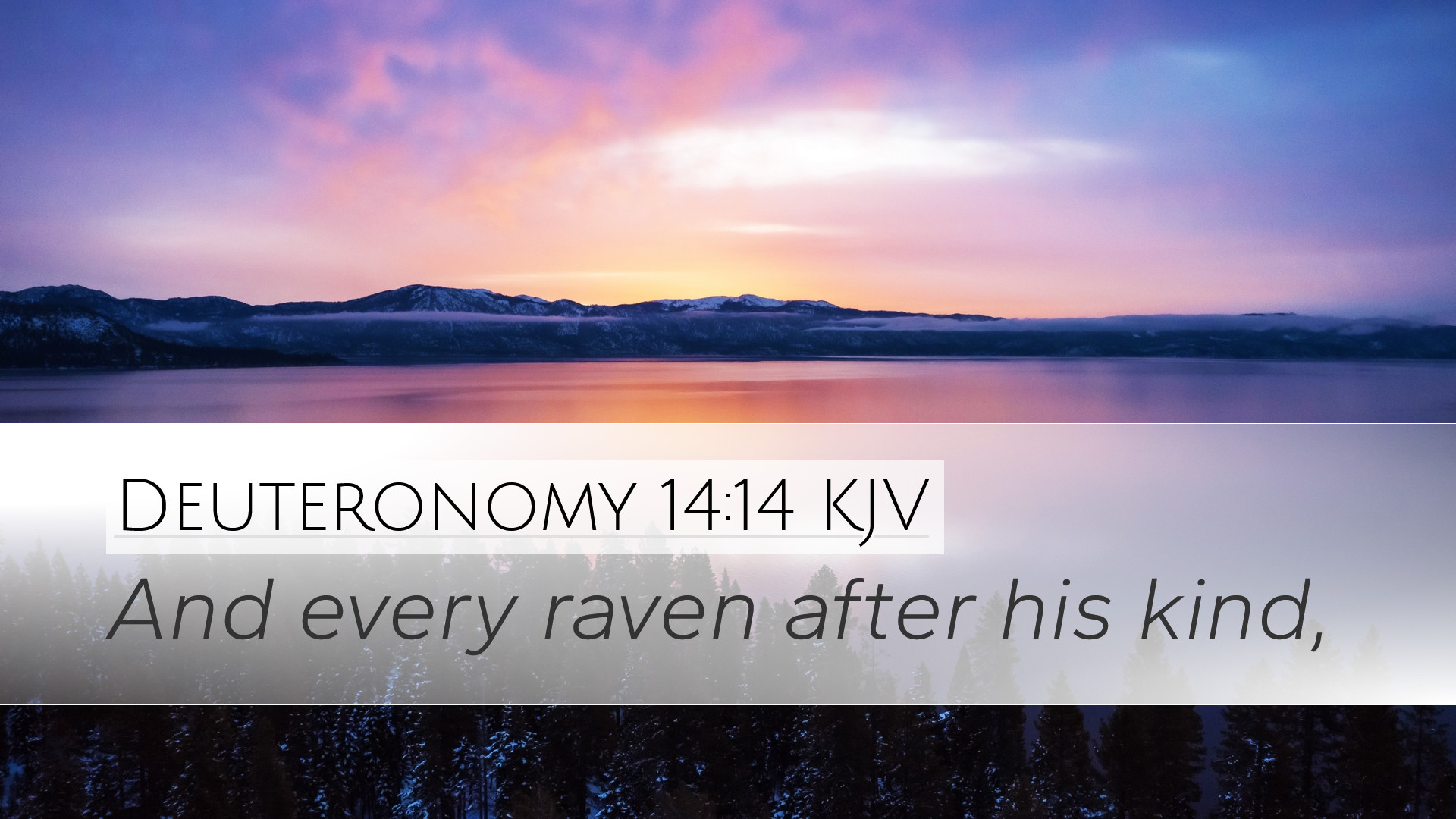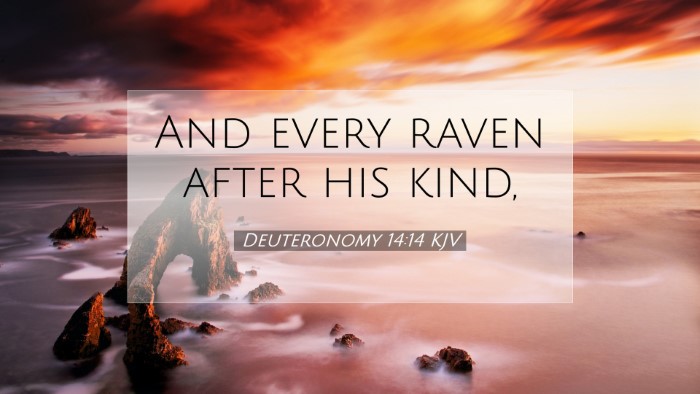Commentary on Deuteronomy 14:14
Deuteronomy 14:14 states, "And every raven after his kind." This verse, part of the dietary laws given to the Israelites, carries profound implications regarding holiness, distinction, and God's providential care over creation.
Overview of Dietary Laws
The dietary laws outlined in Deuteronomy serve multiple functions. They are a demonstration of the covenant between God and Israel and serve to instill a sense of holiness among God's chosen people. These laws reflect deeper theological truths about purity, separation from pagan practices, and devotion to God's commandments.
Divine Standards of Cleanliness
Matthew Henry emphasizes that these laws of clean and unclean animals set boundaries for the Israelites, separating them from other nations. They were to be a holy people, and part of this calling involved obeying God's standards regarding food. The mention of the raven highlights the need for discernment in what was acceptable to God.
Albert Barnes notes that the raven, often associated with death and destruction, symbolizes the importance of being set apart. In contrast to the raven's nature, God's people are called to pursue life and abundance through obedience to divine law.
Symbolism of the Raven
Spiritual Significance
In the biblical context, the raven can represent the darker aspects of creation. Adam Clarke points out that while the raven is a creature with its unique role in God's creation, it serves as a reminder of the fallen condition of nature. The dietary restrictions highlight the separation of holiness and purity from the corruption present in the fallen world.
Further, the raven’s role in the ecosystem, as a scavenger, serves to remind believers of life's transitory nature and the importance of sustaining spiritual cleanliness amidst a corrupt world.
Theological Insights
Covenant and Community
Henry elaborates on how the covenant community is urged to adhere to God's laws as a defining characteristic of their identity. Just as the raven is not to be consumed, so too are the moral and spiritual corruptions of surrounding nations not to be adopted by the Israelites.
Barnes adds that the observance of these laws was not merely a physical act but a spiritual discipline that reinforced the Israelites’ commitment to God’s covenant. Obeying such laws was an act of worship and a method of proclaiming their identity as God's chosen people.
Application for Today
For modern readers, this verse continues to remind believers of the importance of purity and the kinds of influences they allow into their lives. Just as the Israelites were tasked with avoiding unclean animals, today's Christians are called to discern between that which fosters spiritual growth and that which leads to decay and death.
Conclusion
In summary, Deuteronomy 14:14 encapsulates not only dietary instructions but also deep spiritual implications concerning holiness, covenant fidelity, and community identity. These ancient laws serve as a reminder for contemporary believers to examine their own practices and influences, ensuring that their lives reflect the purity and holiness that God requires of His people. The commentary from Henry, Barnes, and Clarke enriches our understanding of God's expectations for His followers, challenging us to pursue a life rooted in discernment and holiness.


